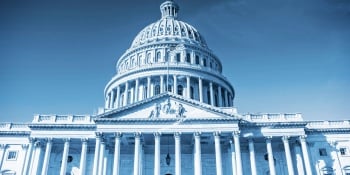Published: 30.06.2022

Work is underway on the so-called international anti-pandemic treaty of the World Health Organization. The Intergovernmental Negotiating Body (INB) is currently discussing the essentials of the Treaty with stakeholders and Member States. Among the entities that participate in the talks are, among others Bill and Melinda Gates Foundation, Clinton Health Access Initiative or the pro-abortion organization International Planned Parenthood Federation. The content and objectives of the agreement have been published by the INB in a "Draft annotated outline." Member States are discussing elements such as giving WHO the competence to regulate travel restrictions and issuing binding recommendations, and the creation of an international vaccination register for COVID-19 and all vaccines.
Negotiations continue
The goal of establishing a global health response to future pandemics is being pursued in parallel through the revision of the International Health Regulations. They already include prevention, protection against, control and ensuring a public health response to the international spread of disease. The INB has planned that this instrument will be adopted by 2024 and the report will be presented at the 77th session of the World Health Assembly.
The first INB meeting was held on February 24, 2022 to define the work methodology. Subsequent meetings followed, where potential substantive elements of international instruments were identified and appropriate stakeholders were selected who could take part in the discussion. According to the schedule set by the INB, on April 12, 2022, a public hearing was held in which the Ordo Iuris Institute participated.
Currently, negotiations on the so-called of the anti-pandemic treaty are continued with the relevant stakeholders selected by the INB and the Member States on the content of the agreement. The next steps will be to identify the provision of the WHO Constitution on the basis of which the instrument should be developed (July 2022), and regional consultations until October 2022, followed by the preparation of a draft agreement. Once these steps are completed, a progress report will be presented at the 76th World Health Assembly in 2023, with a view to adopting the instrument by 2024.
"Gender Equality" and "Sustainable Development"
Regarding the intentions expressed in the agreement, essential elements of the treaty were published in a document entitled "Draft annotated outline of a WHO convention". They cover a wide range of topics with the primary aim of creating global governance and national involvement in the public health sector in line with the "principles of equity, sustainable development and non-discrimination". This multi-sectoral coordination, precisely - as you can read in the scopes outlined - should cover such objectives as "strengthening the capacity of national regulators to license medical countermeasures", "adopting global and national measures to expedite emergency approval procedures" , “access to high-quality, efficient and sustainable health services for universal coverage of health” and gender equality “in global and regional decision-making processes”. In addition, the UN Group of Experts has already asked Member States to ensure that the new international instrument is human rights-based and focuses in particular on 'the rights of women, girls and other vulnerable groups and marginalized populations to the highest attainable levels of physical and mental health without discrimination ”.
More specifically on the key issues that should be addressed in the agreement, it cannot be ignored that INB subsequently published the "Draft Consolidation Outline" which also serves as a basis for consideration and discussion between the parties and reflects the contributions Member States have made to INB. In this document, a long and broad list of items was defined as goals, including, for example: "Enhanced cooperation between the health and financial sectors in supporting universal healthcare coverage"; "Authorization by WHO to review travel restrictions and issue binding recommendations in this regard"; "The possibility of a State party requesting assistance when the magnitude of a pandemic far exceeds the capacity of national public health and healthcare systems"; "Full respect for human rights, including non-discrimination"; "International Immunization Registry for COVID-19 and All Vaccines."
It should be taken into account that the goal of strengthening WHO's preparedness and response to public health emergencies is not only limited to the development of an international instrument, but also focuses on changing the International Health Regulations. This legally binding agreement, in force in 196 countries, already regulates the ability to detect and report potential public health emergencies worldwide. The 75th World Health Assembly, which met in Geneva on May 22-28, 2022, agreed to establish a Working Group on Amendments to International Health Regulations (WGIHR) to present a package of amendments for consideration by the 77th Assembly. The goal of strengthening the WHO's response and leadership to global health emergencies is broadly to be achieved by coordinating work on IHR amendments with the process of developing the international INB instrument.
Questions about the independence of the WHO
In conclusion, when one examines the ongoing international treaty negotiations, it can be seen that the relevant elements under consultation neatly confirm the will to introduce another binding instrument into the international legal landscape. It aims to create a transnational and cosmopolitan approach to counteracting health threats by transferring a large part of the national competences to WHO. The question arises as to the effectiveness of such global coordination, since countries such as Sweden have shown during the pandemic that a local response, without country-wide blockades, has resulted in lower mortality rates compared to countries that have implemented a different policy. This course of action may be even more effective than the delegation to undemocratically legitimate authorities of powers closely related to the restriction of fundamental freedoms.
The problem of WHO's independence also arises in the same context. The fact that among the people financing the Organization, as well as the stakeholders involved in the preparatory work, there are entities that have clearly defined their ideological position on human rights, abortion and democracy for a long time (e.g. Planned Parenthood Federation or Bill & Melinda Gate Foundation), means that objective and independent policy-making by WHO would be impossible, with the risk of promoting and imposing measures that reflect political positions far removed from the will of states and citizens themselves, who would be the direct recipients of those measures.
Veronica Turetta - Analyst at the Ordo Iuris Center for International Law

23.05.2025
We are currently engaging with think tanks and political parties across the continent to collaboratively develop a detailed counter-proposal to the centralist, anti-national, and anti-democratic vision of the European Union promoted by the European Parliament and President Macron.

19.05.2025
• The 78th World Health Assembly, the deliberative body of the World Health Organization, begins today in Geneva.

16.05.2025
On 13 May 2025, James Daniel Jordan, Chairman of the Judiciary Committee of the United States House of Representatives, together with four other members of the Committee, addressed a letter to Michael McGrath, European Commissioner for democracy, justice and the rule of law. The letter inquires how the European Union intends to respond to the actions of Donald Tusk’s government.

15.05.2025
• The European Democracy Shield, an instrument designed to guarantee the EU’s resilience against hybrid attacks and external interference, is currently being developed within European Union institutions.